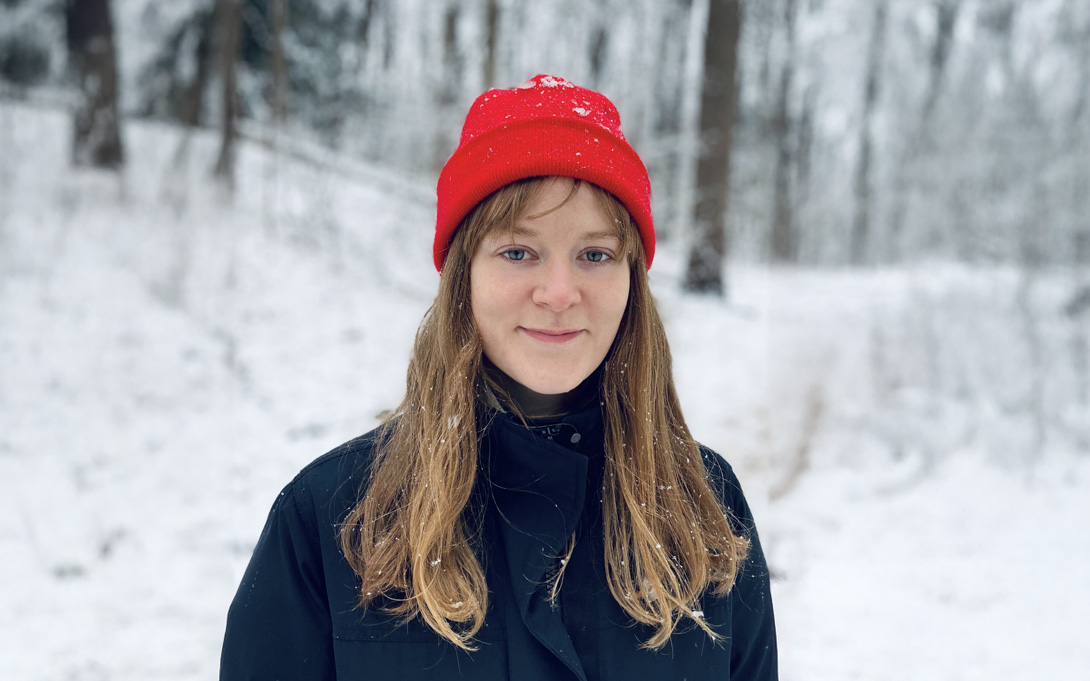
Assistant Professor of Law and STPP faculty affiliate, Salomé Viljoen writes about the law and political economy of data and AI and the role of law in structuring digital life. She is especially interested in platform power, how information law structures inequality, and how law theorizes data about people (i.e. “social data”). She recently answered some questions about her work and career path.
What was your path to the work you do now?
When I started law school, I was deeply concerned about inequality and economic justice. I thought I'd become a consumer protection attorney. It was through working on for-profit colleges and predatory lending, and helping clients stuck in cycles of bad credit and predatory financing, that I found my way to studying commercial surveillance. I took a course my last year of law school on technology and inequality; that's where the relationship between pervasive datafication, extreme concentrations of private wealth, and technology really clicked for me. I've been studying the legal aspect of those interrelated issues ever since. Prior to coming to Michigan Law, I was a fellow at Columbia Law, and a joint fellow between NYU Law and Cornell Tech's Digital Life Initiative. That interdisciplinary fellowship was very important to shaping my methodology and basic approach to studying the law of technology. There, I learned to place law and information systems--and the scholarly traditions of each--on equal footing in terms of their causal and explanatory power.
On what are you focusing in your research right now? Did the outcome of the 2024 presidential election affect your research direction? If so, how?
Right now, I'm primarily working on a rather theoretical piece on privacy. I argue that privacy has come to encompass too many normative claims about information to be useful, and that an overloaded concept of privacy may get in its own way. Instead, I argue for the benefits of deflating privacy to index its more traditional, individualistic informational rights. The goal isn't to say social and structural claims about information have no place in law--the opposite actually. I think formalizing those legal interests as non-privacy interests can actually get closer to what animates our concerns about the way information production can structure and exacerbate inequality, and to how the law typically recognizes and regulates social interests.
I'm increasingly interested in the intersection of digital technology and the climate crisis. AI, and distributed ledger technologies like blockchain, are very energy intensive. Any normative evaluation and regulatory response to these technologies that don't put their carbon costs front and center is incomplete. I am also working on a piece called "Big Mother." It's about reproduction and surveillance, but also about the ambivalences of tracking and collecting pregnancy data. This last one, in particular, has been somewhat affected by the 2024 election. There are prominent figures in the America First coalition, like J.D. Vance, that are staunch pronatalists but that also have close ties to Silicon Valley. There's a particular Silicon Valley strain of pronatalism that clearly lends itself to an intense interest in pregnancy data. Peter Thiel has recently invested in 28, a period-tracking app from the conservative women's magazine Evie. On the other hand, conservatives are dismantling other kinds of pregnancy data infrastructures: conservative states that have passed total (or near-total) abortion bans are dismissing or pausing maternal mortality review boards. So I think there's a lot of interesting and timely issues to dig into from a legal perspective.
Of the classes you teach at U-M, what is one you especially enjoy teaching? Why?
I actually love teaching contract law! It's wonderful to teach a foundational course in the law school curriculum, and to help introduce students to the basic principles of legal thought and legal reasoning. Contracts are everywhere, and learning to read them and what governs them can be tremendously empowering. I hope so anyway--I remember it was for me.
How do you see your work intersecting with STPP's?
Given how interdisciplinary my work is, I'm in dialogue with as many science and technology scholars as I am legal scholars (if not more). That kind of interdisciplinary exchange is very much fostered by STPP. All of my work aims to develop legal approaches to information and legal interventions that can promote using information and information governance for the public good, not private profit. In that sense, I see my work as quite closely aligned with STPP's core approach.
What advice would you have for a student who is interested in following your career path?
Don't worry if you don't have it all figured out, just stay curious and take classes that sound interesting to you. And write!! The best way to figure out if you want to be an academic is to do the work of an academic. Academics are afforded the space to think deeply about the questions they care about, absent external constraints like what a client needs or what a legislator is likely to vote yes on, and to just try to get that question right. That means a lot of reading and writing, both of which are how you do the hard work of thinking. So read and write as a way to arrive at your own thoughts about something, and see if you like it.
